- Home
- Bill James
Full of Money
Full of Money Read online
Recent Titles by the Author from Severn House
DOUBLE JEOPARDY
FORGET IT
KING’S FRIENDS
THE LAST ENEMY
HEAR ME TALKING TO YOU
TIP TOP
LETTERS FROM CARTHAGE
OFF-STREET PARKING
THE SIXTH MAN and other stories
FULL OF MONEY
Bill James
This eBook is copyright material and must not be copied, reproduced, transferred, distributed, leased, licensed or publicly performed or used in any way except as specifically permitted in writing by the publishers, as allowed under the terms and conditions under which it was purchased or as strictly permitted by applicable copyright law. Any unauthorised distribution or use of this text may be a direct infringement of the author's and publisher's rights and those responsible may be liable in law accordingly.
First world edition published 2009
in Great Britain and in the USA by
SEVERN HOUSE PUBLISHERS LTD of
9–15 High Street, Sutton, Surrey, England, SM1 1DF.
Copyright © 2009 by Bill James.
All rights reserved.
The moral right of the author has been asserted.
British Library Cataloguing in Publication Data
James, Bill, 1929-
Full of Money.
1. Drug traffic–Investigation–England–London–Fiction.
2. Gangs–England–London–Fiction. 3. Journalists–Crimes against–Fiction. 4. Police–England–London–Fiction.
5. London (England)–Social conditions–Fiction.
6. Detective and mystery stories.
I. Title
823.9'14-dc22
ISBN-13: 978-1-78010-092-0 (ePub)
ISBN-13: 978-0-7278-6813-8 (cased)
ISBN-13: 978-1-84751-177-5 (trade paper)
Except where actual historical events and characters are being described for the storyline of this novel, all situations in this publication are fictitious and any resemblance to living persons is purely coincidental.
This ebook produced by
Palimpsest Book Production Limited,
Falkirk, Stirlingshire, Scotland.
CONTENTS
One
Two
Three
Four
Five
Six
Seven
Eight
Nine
Ten
Eleven
Twelve
Thirteen
Fourteen
Fifteen
Sixteen
Seventeen
Eighteen
Nineteen
One
Obviously, she didn’t want to be called out some day to find Gerald beaten unrecognizable, except via one of his foul bow ties. Or things might turn even darker. Already there’d been a couple of deaths, admittedly one only a trite turf war shooting, but the other a young investigative journalist who’d . . . who’d got investigative. Esther Davidson had the profile note on him in front of her now.
STRICTLY AUTHORIZED READERS ONLY
{In part personalfn1}
Gervaise Manciple Tasker, aged 31 (deceased).
Born July 1967, Grantham, Lincolnshire. Died August 1998.
Parents: Brian and Margaret Tasker, retired teachers.
Gervaise Manciple educated locally until scholarship (Classics) to Oxford University. Graduated 1988.
Entered journalism. Reporter on giveaway newspapers in Dagenham, London. By 1994 established as freelance specialist in ‘exposure’ topics. Bylined articles The Times, Daily Telegraph, Mail on Sunday and Daily Mail.
Final project: examination of command structure and operational methods of drugs firms on Whitsun Festival and Temperate Park Acres municipal housing estates. It was rumoured Tasker persisted with inquiries although warned off by staff of Adrian Pellotte (Whitsun Festival). Of motivational relevance? But also researched Temperate Park Acres trafficking.
Tasker hobnobbed with a middle-class, professional group who did ‘slumming’ trips to drink at Whitsun Festival and Temperate Acres pubs. (*For special attention of Detective Chief Superintendent Davidson: group sometimes included her husband, Mr Gerald Davidson.)
Two members of Pellotte firm arrested and released. Evidence did not support charges.
As income-boost sideline, possible Tasker also a small-scale dealer in illegal substances for one of the firms. But perhaps an assumed role only, for access to company leaderships and to material for intended article(s). May have been suspected of ‘skimming’ from a firm’s takings or ‘stretching’ the product and personal revenue by undue additive quantities (procaine, boric etc). Death punitive?
Did Gerald realize how bad things might become, and how fast? As tactfully as it could, the profile mentioned the large, braying crew of acquaintances he liked drinking with these days. It was not the sort of thing Esther could raise with him, and not the sort of thing he would raise. Often, she watched Gerald to see whether the journo slaughter especially terrified him. However, his moods always skittered so crazily that you couldn’t read anything from his face or his body angles. Or you could read everything, which added up to the same. There’d been those couple of formal arrests for the killing, but of people who knew how to handle interrogation, how to stymie interrogation.
Witnesses? Scarce. Scared – sceptical about protection schemes. The arrests failed. For gang crime on Whitsun and Temperate this routine was . . . routine.
The funeral. She thought Gerald possibly went. But that might be no more than formal respect for someone he did know, though not closely: a bit of a rally-round to convince his relatives he’d been grandly popular, except with the hoodlum, or hoodlums, who killed him. Esther herself didn’t go. That reference in the profile to possible dealing kept her away. She did not give send-offs to pushers, even to mock-up, masquerading pushers, though, in fact, no confirmation ever came that Tasker traded drugs, neither as an earner nor a cover.
But funerals of the murdered could be tricky for police. Death had its divisions and subdivisions. Only if victims rated as wholly blameless would officers on the case attend, out of respect; not if the life snuffed had been dubious, quasi-criminal, criminal. Esther could enjoy funerals: the hit-or-miss stab at dignity, phoniness in brilliant bulk, the loud, brave, creaky expressions of hope. But she avoided this one and didn’t send anybody else.
She could have wished Gerald hadn’t gone either; supposing he had, that is. His role as principal bassoon with prestigious orchestras brought a certain fame. People noticed him, and he would wear those incandescent bow ties, possibly even to a funeral. Many knew his wife to be a big-time cop. At present, Esther’s role as Detective Chief Superintendent in the Metropolitan Police put the criminal life of a large, undocile slab of London under her eye. Later, she would leave the Met and take on even bigger pieces of geography when she’d been raised to Assistant Chief Constable and worked in two out-of-London forces.1 For now, though, this. Gerald’s possible attendance at the funeral might not look as bad as if she’d appeared there herself, but it was an embarrassment. Gerald specialized in embarrassments. He regarded it as the duty of an artist, such as himself, to come up with them. Artists shocked. For instance, Van Gogh’s ear.
They weren’t all artists in Gerald’s social group. He might be the only real one – though there’d be some amateurs and dilettantes – having a go at music, writing, painting. But she assumed they’d all be educated, male, big thinking, large talking, opinionated, stupidly and perilously blurt prone. They might well have welcomed in a freelance journalist who sold to the major papers and who’d been at Oxford on the Humanities side, not engineering, or anything useful – ‘banausic,’ as Gerald would say. They like
d to pub crawl by taxi and especially to pubs in dodgy areas, including on the Whitsun and the Temperate Park estates. He and his mates believed this showed they were bold, not timorous or narrow or miserably bourgeois. They were, of course, bourgeois, but not timorously, narrowly or miserably bourgeois, in their view.
Esther regarded that kind of carry-on as OK, but Gerald with drink in him was liable to open his gob a bit wide, and could say things in these risky bars that might not be life enhancing – for his own life, that is – or even tactful. Others in his lot might do similar. Being arty they thought they could speak their piece at full volume if they wanted to. And such people, liquored up, would want to, convinced that loudness helped prove they were not timorously, narrowly or miserably bourgeois.
For example, they’d most probably sound off with frank, and therefore deeply unsafe, comments on the death of one of their number in bad circumstances – Gervaise Manciple Tasker, investigative journalist. Esther wished they’d give such pubs the go-by, at least for a while. It wasn’t likely, because Gerald would wish to signal he could do whatever he chose to do. Call it artistic licence. Call it senseless. Call it naive. These pubs would be listening posts, among their other roles. Wild, unedited conversations between Gerald and his chums might get mentioned upwards to people running the firms – people like Adrian Pellotte and Harold Perth Amesbury on Temperate. This could easily turn out troublesome.
It shouldn’t be troublesome, easily or otherwise. Esther had to recognize that. Pellotte and Amesbury and their firms ought to have been squashed a long while ago. But, of course, Pellotte and Amesbury and their firms successfully hid their real and booming substances trade behind one or more of the usual type of respectable commercial fronts: courier services, scrapyards, builders’ merchants, leisure equipment, garden furniture supplies, chandlering. Esther, new to the patch, would try to expose and destroy the true core game of these outfits. To date, though, Pellotte and Amesbury and their teams survived – survived and threatened. Gerald must know this, yet would not, could not, kowtow, due to his special, gifted, unconfinable soul, which, during piss-ups, probably became less confinable still, on whisky.
All right, she was used to Gerald’s unique nature. For years he had gone through spells as an all-round, egomaniac, blustering nuisance who could play first bassoon to top concert standard. But she’d admit he definitely had many loveable aspects, as well as the rubbish:
(1) non-golf
(2) apolitical
(3) anti-soccer
(4) anti-JS Bach
(5) but fond of other eighteenth-century stuff
(6) sweet breathed
(7) skilled, imaginative and staminad at sexual violence
(8) tap-dancing flair almost to professional level, if there still were professional tap dancers
Their marriage held together because of such qualities, and all the usual banal, valid, historic and mysterious pressures, plus a few extra. Just the same, Esther recognized he would always be liable to slip into one of those spells as a deeply egomaniac, posturing nuisance who could play, or had played, first bassoon to top concert level, and thought he could speed through all hazards on account of his divine and divinely given talent. So, he’d probably go in for provocative, arrogant, persistent, mouthy behaviour in the wrong places. If she’d tried to warn him, he would have said there were no wrong places for Gerald Davidson; he owed his presence wherever he could get to.
A TV arts show wanted him to appear in a panel. This would boost his self-regard a notch or two higher. Experts on first bassoon playing assured her of Gerald’s genius. ‘Fluid, guileful, dexterous, one-off, magisterial, impish,’ a Guardian reviewer said about a Gerald performance at the Barbican. Esther found she remembered word-perfect such crap, though possibly meaningful crap if you were familiar with that sort of crap.
* * *
fn1 See Tip Top and In The Absence Of Iles.
Two
Just ahead of Larry Edgehill, as he walked to the Tube station, a large, very noticeably undamaged silver BMW pulled in, alongside three boarded-up, fly-postered ex-shops. It seemed to wait for him. The posters touted a tattoo parlour, bargain hairstyling for men and women, guitar tuition, two used furniture auctions. Edgehill recognized the sparkling car, and its registration, ADP 12. Most local people would. In any case, the brilliantly preserved condition marked it out as the toy of someone extremely magnificent on this, the Whitsun Festival municipal housing estate; ‘extremely magnificent’ signifying the car could be left in the street, or anywhere else on Whitsun, and nobody would have the inane cheek to hurt, filch from, or even touch any part of it, let alone take it.
The vehicle and its gaudily intact exhaust system, tyres and mirrors etc must belong to a leader in special commerce, and of at least brigadier level in the eternal Great War against neighbouring Temperate Park Acres estate. Actually, of course, as Edgehill knew from the famed reg, the owner’s rank would turn out to be much higher than brigadier: say, Chief of the General Staff – his. Edgehill kept walking along Gideon Road. He had to get his morning train for work. Yes, work. Not long ago, he had been switched from Sport programmes at N.D.L.tv to produce a regular arts, or Arts, show for the company. That was fine, or even better than fine. But, as he saw it, there were the arts, or Arts, and there was life, or Life. Not the same. Not even sodding similar. For him, the Arts meant these culture sessions weekly, in series of thirteen over a three-month period twice this year, and going on similarly into 1999, then even beyond. Whereas Life he regarded as the Whitsun housing estate, its vandalism and general thuggery; the cash complexities detaining him as a resident there; the heavy mortgage that got him the Whitsun flat a few years ago; the incessant territorial drugs trade savagery between Whitsun and Temperate Park Acres, including deaths, like the young, nosy journalist’s lately, plus, of course, turf fight casualties. Admittedly, people said the arts, or Arts, and life, or Life, should be properly linked. If not, the arts, Arts, would appear phoney, elitist, irrelevant, effete.
And, yes, Edgehill would admit a connection between the two did sometimes happen.
Now.
Although he might, and did, try to avoid all contact with Whitsun’s gang lads, it wouldn’t necessarily stop them seeking contact with him. He saw that Adrian Pellotte had the front passenger seat in the BMW, next to his chauffeur/ aide-de-camp/ bodyguard/secretary/hit man/poison taster/gatekeeper/adviser on the novels of Anthony Powell/enforcer/valet/counsellor/echo/pal. Edgehill favoured walking on, possibly upping his pace, though unnoticeably, if he could do it: best avoid seeming rude or offhand to Adrian Pellotte. This was one reason for not turning your back on him. Offhand? That might be only the start. There were lots of other bits Adrian could take off you, or have taken off you. A couple of toes, for instance. A couple of balls. Edgehill tried to believe the car’s arrival had nothing to do with him, tried very hard to believe it. How could the car have anything to do with him?
The car had something to do with him.
‘May we offer a word of very sincere congratulation on your television show week after week, Mr Edgehill?’ Pellotte said through the open window, his voice and eyes angled up towards Edgehill’s throat/face in an almost credibly friendly way, most likely not at all foreshadowing a rip. ‘Or Larry, if you’ll permit, this being informal. A high, maintained standard. Remarkable. Dean and I have long wished to pass on our thanks. Your programme’s a staple for us.’
‘Plus we have a fairly vital topic Adrian would like to discuss with you,’ Dean Feston said.
‘Which?’ Edgehill said.
‘Vital,’ Dean replied.
Edgehill halted and crouched. He had never spoken to, or been spoken to by Pellotte before, just seen him and the BMW on its regular, cash-harvesting or disciplining trips about Whitsun, civically respecting the speed limit, slowing even further for hang-about pigeons, direction-signalling top notch, like a good deed in a much worse than naughty world: they’d had clips from a new production of The M
erchant of Venice on the programme lately, and some lines stuck in Edgehill’s head.
‘Yes, a staple for us, the programme, isn’t it, Dean?’ Pellotte said.
‘Oh, great,’ Edgehill said. ‘Thanks. We’re always delighted to hear from—’
‘It has what could be described as range,’ Dean Feston replied. ‘This is what gets our response – Adrian’s and mine.’
He would be about 185 pounds, a lot of it bone and sinew, dark suit, white shirt open at the neck and three buttons down, no medallion. A whisper said he had been pulled in by the police lately, then released, uncharged. The reporter’s death? Feston’s missing medallion could not be more renowned. Its absence set a tone, indicated a particular, very muted, Whitsun-racketeer style. Vogue might pick up on it soon for one of its milieu features.
‘Thank you again,’ Edgehill said. ‘Which other vital topic do you—?’
‘Consistency,’ Dean said. ‘We can rely on A Week in Review for continual perceptiveness, yet not jargon or pedantry. Adrian’s averse to jargon.’
‘We deeply liked that item you screened last week on the Tate Retrospective, didn’t we, Dean?’ Pellotte said.
Edgehill felt conspicuous chatting on long, straight Gideon Road, very visible from ahead and behind. Nobody would think the car had pulled in to ask him directions. Pellotte and Dean didn’t need directions around Whitsun. They directed.
Edgehill said: ‘The programme tries to—’
‘We’d already been up town to enjoy the Retrospective, you know,’ Pellotte said. ‘We do like to keep on top of things. How else to pull one’s weight in conversation otherwise?’
‘Yes, how fucking else?’ Dean said.
‘A Retrospective gives that sequential aspect,’ Pellotte said. ‘Dean’s got such an appetite for learning. It’s an inspiration.’
He would be seven or eight pounds heavier than Dean and a couple of years older, about forty-five. Pellotte had on a grey, pinstriped suit, his dark hair brushed smooth, not spiky or tinted. His face was entirely unscarred and free from cell pallor, his tie burgundy and in a modest knot, no flashy, imperious bulge. He didn’t do hand jewellery of any kind. Whitsun gossip said pushers and wholesalers as far off as Carlisle and Linton-upon-Ouse spoke wonderingly of this principled dearth of rings, despite magnificent commercial, unprosecutable success on and around the estate, regardless of a new clean-up, top woman detective. Yes, tone. Obviously, in view of Pellotte’s non-decorativeness, it would have jarred if Dean wore a medallion. Unflashiness and Pellotte were synonymous, understatement his statement.

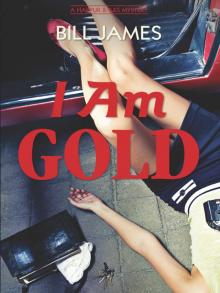 I Am Gold
I Am Gold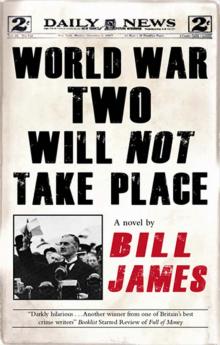 World War Two Will Not Take Place
World War Two Will Not Take Place Pix (Volume Book 24) (Harpur & Iles Mysteries)
Pix (Volume Book 24) (Harpur & Iles Mysteries) Disclosures
Disclosures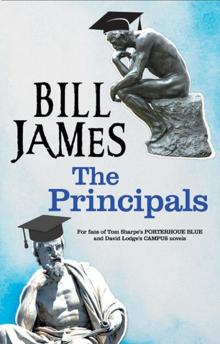 The Principals
The Principals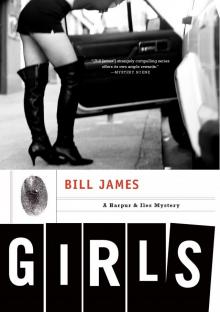 Girls
Girls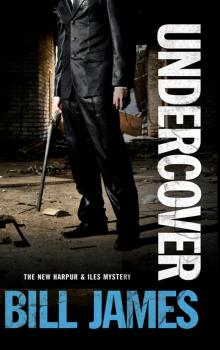 Undercover
Undercover Come Clean (1989)
Come Clean (1989) Close
Close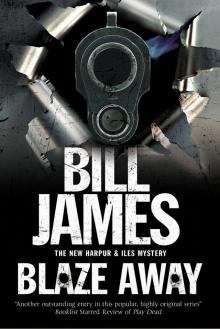 Blaze Away
Blaze Away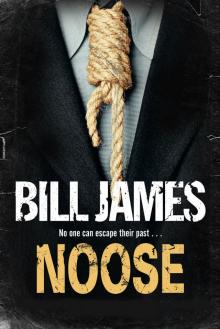 Noose
Noose First Fix Your Alibi
First Fix Your Alibi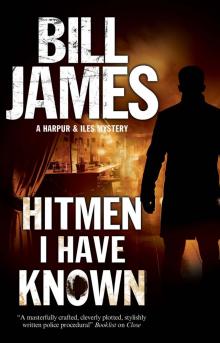 Hitmen I Have Known
Hitmen I Have Known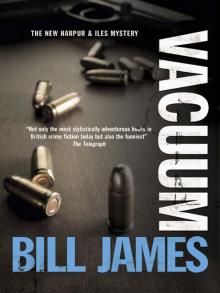 Vacuum
Vacuum Play Dead
Play Dead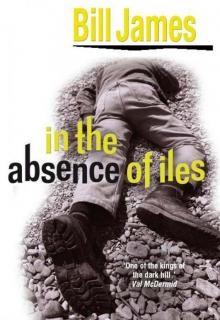 In the Absence of Iles
In the Absence of Iles The Man from the Train
The Man from the Train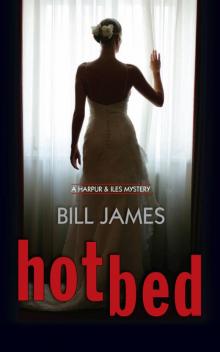 Hotbed
Hotbed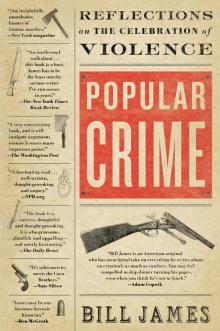 Popular Crime
Popular Crime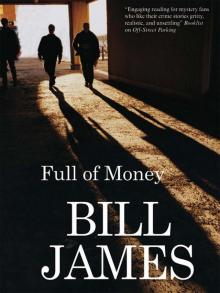 Full of Money
Full of Money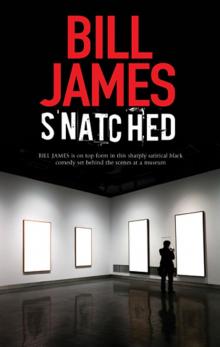 Snatched
Snatched